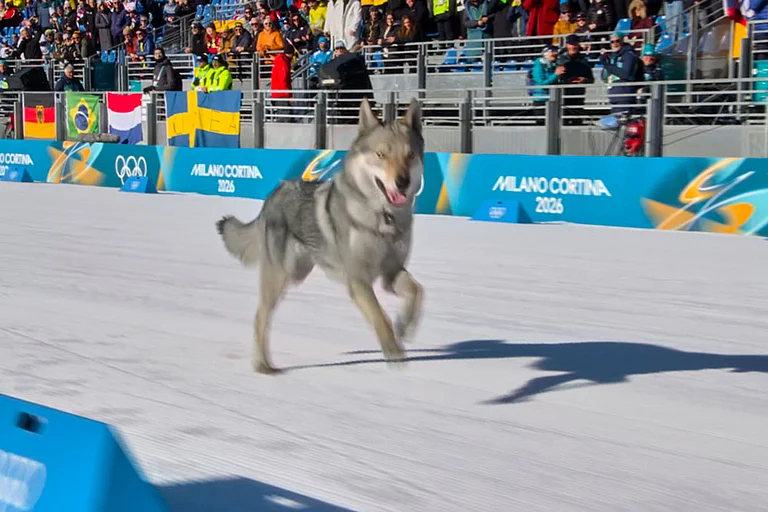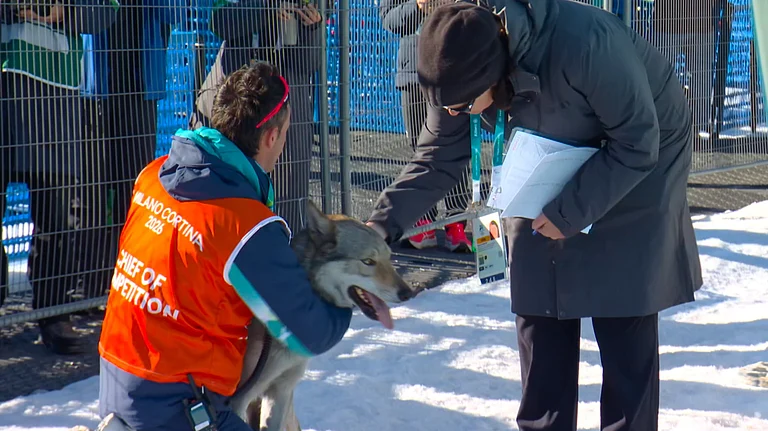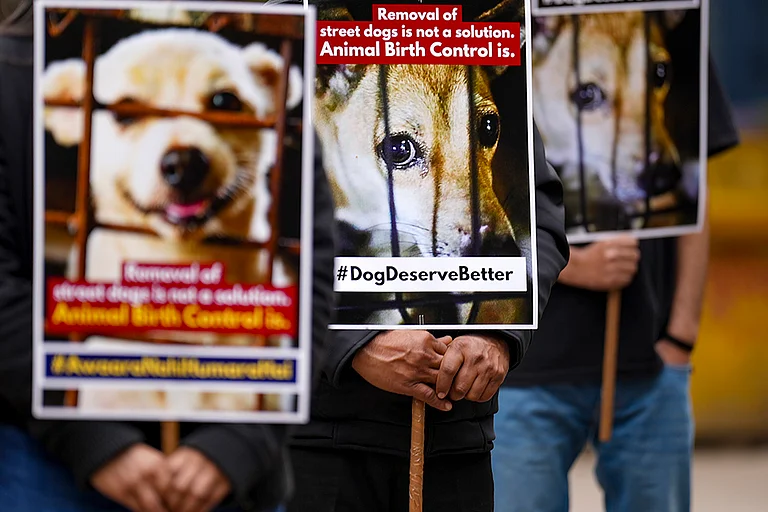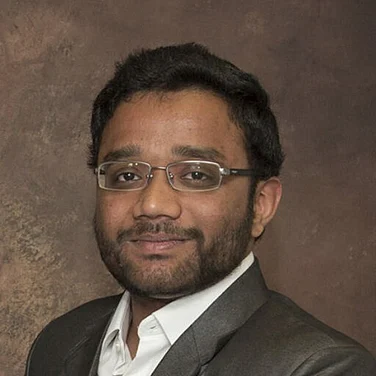In the summer of 2020, as Delhi’s streets fell silent during the pandemic, another crisis emerged — the sudden disappearance of food for the city’s stray dogs. With restaurants and markets shut, animals that had lived quietly on the margins were left hungry, sick, and ignored. For most, it was an invisible tragedy. For Kushal Sachdeva, then only 11, it was the moment that shaped his purpose.
Like many children, Kushal had always longed for a pet dog, but his family, not especially comfortable with animals, was never keen. What could have been a disappointment turned into something greater: the chance to look after not one animal, but the many that roamed his neighbourhood and, eventually, the entire city. What began with feeding strays in his colony soon grew into Protect Paws, a youth-led NGO that now supports community dogs across Delhi through safety collars, treatment, advocacy, and public awareness. With the help of his social media manager Anaaya Khurana, community outreach coordinator Joshua George, and a growing team of volunteers, Kushal transformed a personal passion into a citywide movement.
Collars That Tell a Story
One of Protect Paws’ most transformative ideas has been the design of QR-coded collars with reflective strips. At night, the reflective material alerts drivers to the presence of dogs, preventing countless accidents. But the QR codes take the idea even further.
When scanned, they reveal a digital profile of the dog: its name, photograph, vaccination history, health details, location, and the contact information of its local caretaker. For the first time, community dogs could be identified as individuals, not anonymous strays. If a dog wanders off or is injured, neighbours or vets can instantly access its history and contact those responsible for its care. The collars have given Delhi’s stray dogs both visibility and identity — making them part of the community rather than outsiders.
Healing and Shelter Partnerships
Protect Paws’ work does not end with collars. The initiative has partnered with shelters across Noida, South Delhi, and East Delhi to address recurring problems like escapes and nighttime accidents. Injured or paralysed dogs have received emergency care through networks of vets and volunteers, cases that would once have gone unnoticed.
Each story reinforces the same point: stray dogs deserve dignity, care, and the right to live safely alongside the people of this city.
Shaping the National Debate
In August 2025, the Supreme Court ordered the mass removal of stray dogs from Delhi and their confinement in shelters. For anyone familiar with the city’s realities, the plan was impossible. Shelters lacked the space or resources to hold even a fraction of the population. Removing dogs from their territories would only create chaos, with new unvaccinated dogs moving in and rabies risks rising.
Kushal stepped forward to challenge the order. Speaking on CNN and Good News Today, he made the case that the real solution lies in sterilisation and vaccination. He argued that only genuinely hostile dogs should be housed in shelters, and that keeping them within their communities — visible, vaccinated, and cared for — protects both animals and humans.
When the Court later revised its stance, many of these points were reflected in the verdict. The emphasis shifted to sterilisation, vaccination, and restricting sheltering only to aggressive cases. The outcome echoed exactly what Kushal and fellow activists had been saying for weeks. It was proof that even the highest authorities could be influenced by grounded, evidence-based advocacy — and that youth voices could be central to that change.
Changing Minds, Starting at Home
Perhaps the most profound impact of Protect Paws has been the shift in how people see stray dogs. Kushal began by changing his own family’s perception, turning fear into acceptance. That ripple expanded outward — to neighbours, classmates, and eventually people across India.
Through Protect Paws’ Instagram page (@protect_paws1) and its website (protectpaws.in), countless stories have been shared of dogs whose lives were saved, communities that grew more compassionate, and ordinary citizens who now feel safer because their local dogs are identifiable and vaccinated. The collars, shining at night and carrying a dog’s full history, have become a symbol of coexistence.
Writing for Change
Kushal has also used writing to amplify his mission. His article, “Breaking the Stigma: Why Street Dogs Deserve Our Care, Not Fear”, published in The Quint, confronted the idea of strays as a menace. It reframed the conversation around safety, empathy, and evidence-based solutions.
This blend of practical action and public advocacy is what gives Protect Paws its strength: it is as much about changing policies and perspectives as it is about collars and treatments.
Health and Wellbeing at the Core
At every level, Protect Paws contributes to community health. Reflective collars reduce accidents that threaten both drivers and dogs. Vaccination records make rabies prevention more systematic, protecting human lives. Sterilisation leads to calmer dogs, fewer conflicts, and healthier neighbourhoods. And for the volunteers and feeders who work with Protect Paws, the emotional satisfaction of helping animals has become its own form of healing.
By rooting its mission in safety, prevention, and care, Protect Paws shows how protecting stray dogs is not separate from public wellbeing — it is part of it.
Beyond Animal Welfare
While Protect Paws defines Kushal’s leadership, it is not the only arena where he has made his mark. He is a national-level hockey player, having captained his school team and represented at state tournaments. He is also an international robotics competitor, representing India at RoboCup and building advanced autonomous systems. Alongside this, he has published articles and research papers on technology, artificial intelligence, and innovation.
But these achievements, as impressive as they are, orbit around the same core: using skill, teamwork, and evidence to solve real-world problems. Protect Paws is where those qualities have found their most urgent and compassionate expression.
A Movement That Lasts
Protect Paws has already grown beyond one teenager’s initiative. With standardised processes for collars, treatment coordination, and outreach, the project can be carried forward by volunteers, shelters, and future leaders. Its advocacy has left behind not just impact but a blueprint — one that shows how India can care for its community dogs in a way that protects human safety and animal dignity alike.
What began as a small act of feeding hungry dogs has become a movement that has reshaped public debate, changed policies, and built bridges between communities and their four-legged neighbours.
About Kushal Sachdeva
Kushal Sachdeva is a writer and a passionate learner of emerging technologies, with a deep interest in computer science, innovation, and real-world problem-solving. An international-level robotics competitor, state-level hockey player, and founder of Protect Paws — a Delhi-based NGO dedicated to the welfare of stray dogs — he blends technical expertise, leadership, and social responsibility. His initiatives for animal welfare include vaccination drives, feeding programs, and the distribution of reflective QR-coded collars to improve dog safety and traceability. Driven by a strong belief that technology, when applied thoughtfully, can bridge gaps and unlock opportunities for millions, his writing combines research, analysis, and personal insight to examine how innovation can address some of India’s most pressing challenges.


























